|
Florida's Tax Credit Scholarship offers funding for low-income students to attend private schools, similar to the Opportunity Scholarship legislation (LB 26) sponsored by Senator Bob Krist in Nebraska. In Florida, thousands of students (69,950 during the 2014-2015 school year) have been able to take advantage of the Florida Tax Credit and attend the school of their choosing, yet the state teacher's union is unhappy.
The state teacher's union (FEA) sued the state in 2014, but a judge ruled that the union had no standing on its claims regarding the Florida Tax Credit Scholarship program. The union is now appealing the decision, sparking the #DropTheSuit "Rally in Tally," attended by some 10,000 students and parents. Around the country, hundreds of thousands of low-income students are making educational gains as they take advantage of innovative school choice options. So far, Nebraska's legislators have been unwilling to offer the same options to students in our state.
0 Comments
Nebraska School Choice Week (January 24-30) gave Nebraskans a great opportunity to discuss K-12 public education options currently available, including celebrating the great things we are currently doing, and identifying areas that need obvious improvements. School choice advocates got a chance to highlight alternative education options to address those needed improvements in discussions about tax-credit scholarships, charter schools, educational savings accounts, and online learning.
Like any public forum, there were dissenting opinions about school choice, and those arguments were strongly voiced during Nebraska School Choice Week in regards to expanding educational opportunities for parents and kids through options outside the control of the traditional public school administrative model. In fact, the Nebraska teacher’s union spent thousands of dollars in persuasion polling and press conferences during Nebraska School Choice Week to ensure they would not lose influence with voters in Nebraska. Despite the opposition's rhetoric, reasonable, forward-thinking parents want control and choice over their children’s educations, and they believe their zip code residence and their income level should not dictate those choices. As communities from New Orleans to Milwaukee to Miami have learned, educational choice is an immediate solution for parents who have children who are trapped in underperforming traditional public schools. In fact, 69% of Americans support school choice overall, according to a new national poll from the American Federation for Children, and 76% support public charter schools, with only 20% opposing them. And like so many things in our American dream, having the opportunity to choose from options that meet the diverse needs of a diverse population makes parents and students more committed towards educational outcomes, more engaged to ensure their success, and more willing to change from the status quo to fit their unique family needs better. Indoor Plumbing: Change Can Be Difficult, But the Rewards Are Great Let’s look at a simple analogy. Indoor plumbing was a big change for people all across the country. People had been living without indoor plumbing for millennia; they knew they could get along just fine without it. People also had vested interests in the way things had always been done. If there had been a privy builders union, you can bet they would have fought indoor plumbing tooth-and-nail. They would probably have told people indoor plumbing was dangerous and would result in nasty sewer backups (which actually does happen sometimes). But people here in Nebraska visited their relatives in Philadelphia or Chicago and came home thinking, “That indoor plumbing is pretty great. My sister gets hot running water right in her kitchen. My life would be easier and more efficient if I had that.” So they adopted indoor plumbing, and the privy builders learned that with advances in technology come even more job opportunities than they previously had. Of course, the courthouse in Frontier County, NE, was the last courthouse in the nation to get indoor plumbing, but if you visit that courthouse today, the drinking fountain works just fine. Indoor plumbing is a nice luxury, but quality education shouldn’t been seen as a luxury, especially when children in the rest of the country already have the immense opportunities that come with school choice. By putting up roadblocks to school choice in Nebraska, we are preventing growth and innovation in our state. I’m not willing to move into a house without indoor plumbing, and likewise, there are many people who are not willing to move to a state without school choice. Not when they have enjoyed it for a quarter of a century back home. Learn the Facts About School Choice Opponents to school choice are willing distort or avoid the facts in order to keep educational options out of Nebraska. They’ll tell you that charter schools are private schools. They’ll say that wealthy donors are trying to take over the school system. They’ll say school choice advocates have hidden agendas. Just so you know, here’s the agenda of school choice supporters (we’ve never been shy about it):
If you’re new to the subject of school choice, or have only heard one side of the story about it, check out the facts. Talk to someone who came from a state that had school choice. There are 25 years of school choice examples in the U.S – some good, some bad, and some great which is why it is still around. In the last 10 years, 43 states have pin-pointed best practices in their school choice legislative bill writing. The net effect is that school choice is expanding faster in states that already have it than legislative sessions can give yes votes to on Capitol floors. And even though we are a late-adopter, Nebraska is in a position to cherry-pick those best practices to write legislation for our state that is the best for parents, students, teachers and taxpayers. There are more than a million children in this country on waiting lists for public charter schools. Supply-and-demand economics is shifting public education into a free market competitive arena where the best choices thrive. The days of the one-size-fits-all traditional bureaucratic public school monopolies cannot keep up with the innovation and academic outcomes of school choice options. But we will never know until we try, Nebraska. And hopefully we don’t fall too far behind before we do; we can still catch up. by Rachel Terry As legislators in Nebraska examine and debate school choice legislation, one question that sometimes arises is whether or not school choice programs promote good citizenship and democratic values. Some school choice programs, like the Opportunity Scholarship program, would likely increase enrollment in private schools. Some people claim that private schools, especially those operated by religious groups, fail to instill values like tolerance and civic responsibility in their students. Studies show that this simply isn’t true. Studies Show Private Schools Are Better at Instilling Civic Values Research shows that students who attend private schools are more tolerant of others, more likely to vote, and more likely to volunteer in their communities that students who attend public schools. Patrick Wolf from the University of Arkansas reviewed all existing empirical studies that compare civic values in public and private schools. The most frequently studied topic was tolerance. Students were asked to identify their “most disliked” group of people. Then they were asked whether members of that group should be allowed to hold public rallies, have books in the library sympathetic to their ideas, etc. The results of these studies are very interesting. Most studies found that private schools have the advantage over public schools in teaching tolerance, volunteerism, political knowledge, political participation, and other civic values: Studies Comparing Civic Values in Private and Public SchoolsIn Wolf’s publication, “Private Schooling and Political Tolerance,” he writes, “The data speak clearly here: Students with more private education are more politically tolerant, all else being equal.”
Common Misperceptions The Friedman Foundation explains, “Public schools . . . are perceived as institutions where children learn good civic values. Because public schools are government-run, many people assume they must be more devoted to teaching the values of the community.” For example, social theorist Benjamin R. Barber wrote, “Public schools are not merely schools for the public, but schools of publicness: institutions where we learn what it means to be a public and start down the road toward common national and civic identity. They are the forges of our citizenship and the bedrock of our democracy.” Studies are showing, however, that public schools are less effective at being “forges of our citizenship” than private schools. Improved Teaching = Improved Communities Of course, most parents are less concerned about civic values than they are about core academics. As indicated by ACT scores, private schools in Lincoln, Nebraska, are more successful at teaching core academics than public schools. As stated by the Friedman Foundation, “research shows private schools are simply better at teaching students than public schools; the same qualities that make them better at teaching subjects like math also could make them better at teaching values like tolerance.” With Opportunity Scholarships, more Nebraska students will have the opportunity to receive educations that will prepare them better in both math and tolerance. Our state can only benefit from such an improvement. With National School Choice Week fast approaching, people in Lincoln and across the state of Nebraska are talking about school choice and how it could benefit kids, parents, and teachers in our local communities. The excitement is palpable, and the future seems brighter when students and families have more options to choose from.
There are certainly those who would like to limit choice, however. They are people with personal interests in the concentration of power and resources that comes with the traditional public school district structure. They try to convince us that we already have all the choices we need and that looking for other options is somehow selfish or misguided. Kentucky is one of the other few states that does not have charter schools, and it's interesting to see that critics of school choice in Kentucky say the exact same thing as the critics in Nebraska. In a piece for Kentucky's WFPL News, Jacob Ryan writes, "Hargens said one district strategy to fight charter school support is pushing the idea that Jefferson County parents already have a form of school choice, a key selling point of charters. Hargens said Jefferson County Public Schools offer an array of magnet schools, and students also have access to private schools within Jefferson County." This is uncannily familiar to the op-ed written by Lincoln Public Schools consultant Doug Evans, entitled, "Nebraska Has Had School Choice For Years." State Senator Adam Morfeld (who received contributions from the Nebraska State Education Association teachers union) posted Doug Evans' op-ed on his Facebook page and said: "Nebraska has had school choice for years, it is called option enrollment. Another example of our strong Nebraska public schools giving parents and students options and high quality education. I will fight hard to preserve it!" Morfeld's passionate commentary points to another unfounded claim by school choice opponents that is commonly brought out and paraded around by those who benefit from the public school district monopoly structure: school choice "drains" public schools. When taxpayer money for education follows the students, no money is "lost." It all goes to education. What all the hand-wringing is about is that parents get to make the decisions, not those who currently hold all the power. Again, there is no loss of money with school choice. The loss feared by school choice opponents is a loss of power over of the money. Adam Morfeld might not receive as many campaign contributions from the teachers union if the union doesn't have as much control over teacher's paychecks. Doug Evans might not be hired on as a PR consultant if LPS has to compete with other public schools that use their money more wisely. When they have to compete, they'll use their money to improve educational outcomes instead of spending hundreds of thousands of dollars in marketing to convince the public that they don't really want choice. Come to the National School Choice Week celebration at the Capitol on the 28th. It's time to cut through the false messages and bring hope to the thousands of Nebraska students who need other options in order to thrive educationally. See you there! We celebrate parents' and guardians' rights to choose public school, private school, home school, or any combination of these options to help each child reach his or her academic potential.
Join us at the National School Choice Week celebration at the Nebraska Capitol. Thursday, January 28, 2016 10:00am North Steps of the Nebraska State Capitol RSVP Here For more information, email [email protected]. On December 4, 2015, the following testimony was given to the Nebraska State Board of Education. "You have heard powerful, heartfelt testimony this morning.
I offer a Win-Win solution. We are faced with an opportunity to join together on behalf of all children's education. It is difficult for teachers to be faced with such a wide range of ability in their classrooms. Children not engaged may cause disruption or be assigned to the safe seat. It all takes away from instruction time. Curriculum changes may add to difficulties for some children in the classroom. Parents unhappy with curriculum have sought remedy in the courts. Some parents are opposed to the sexualization of children at school. Some parents prefer a back-to-basics reading and math curriculum. Some parents are opposed to gender inclusiveness in bath and locker rooms. There really isn't a middle ground with these issues. They are too far apart. Providing parents just a portion of the education dollars which would have gone to the school would enable those parents to choose student learning options which best meet the needs of their student. Those parents who seek different curriculum and environment for their student would benefit teachers, classroom and environment they disagree with; by their withdrawal. Nebraska Academic Savings Accounts would provide the means for parents who seek to opt out of present school practices, to have other options. Nebraska Academic Savings Accounts is an 8-page draft of legislation available to all on the internet. I urge you to join those parents; contact your senator and let them know how this will benefit schools and students both. Thank you, Deb Andrews Guest post by LaRae Eifert In researching choices for our state and the city I live in, my recommendation would be charter schools.
Erin Duffy of the World Herald Bureau reported on February 18, 2015, that Nebraska lawmakers greet backers of charter schools with skepticism and tough questions. One of the questions is: with what FUNDS? Answer: state and federal dollars, because the money follows the student. Nebraska is one of just eight states that does not have laws authorizing charter schools, which are independent, taxpayer-funded schools typically run by private groups or companies. I recommend charter schools for the State of Nebraska and to all of our cities including the city of Lincoln where I live. Charter schools are public schools of choice, meaning that families choose them for their children. They operate with freedom from some of the regulations that are imposed upon district schools. Charter schools are accountable for academic results and for upholding the promises made in their charters. They must demonstrate performance in the areas of academic achievement, financial management and organizational stability. Charter schools can vary a great deal in their designs and in their results. Uncommon schools create schools based on their principles and practices. There are now more than 6,000 public charter schools serving more than 2.3 million students in 44 states & the District of Columbia. There are more than 600,000 children on waiting lists nationwide wanting the opportunity to attend a charter school. Also we the taxpayers contribute over 61% of our property taxes to the Lincoln Public School and ESU 18 budget, but we don't have much say regarding the content and methodologies of their teaching. The State law makers need to research and view information allowing us as taxpayers to open charter schools to teach and train our children without an emphasis on social issues that don't contribute to academic success. We have highly educated parents, teachers and independent businesses in our state and communities that are capable of creating and managing charter schools for our children. We need CHOICES! LaRae Eifert is a Mother, Nana, Businesswoman and Defender of our Constitutional Rights and Moral Values. She lives in Lincoln, Nebraska. by Rachel Terry What motivates you to do well in your profession? I'm a freelance writer, and I know pretty quickly if clients like the work I do for them. If they don't like my work, they find another writer. If I miss a deadline, I will probably lose the chance to write for that client again. If I do a knock-down job, not only will I probably get more work, but I might just get a bonus on top of a timely paycheck. This kind of feedback motivates me to do my best. I have financial incentives for being responsive to clients and for producing the best work I possibly can. I also know that financial consequences inevitably follow lazy or sloppy work. This feedback loop is familiar to most workers in most industries in the free world. Hair stylists who do great work can command higher rates, and accountants who manage finances well earn new clients. It seems that about the only industry where the feedback loop is broken is in union-commandeered public K-12 education. And here's why: The following two paragraphs are from the Lincoln Education Association's November 12, 2015 newsletter to its members: The LPS Seniority and Assignment lists are used to determine who gets surplussed (reassigned) when there have been changes in a building’s enrollment, or budget or program changes in the district. The lists are also used if there is going to be a reduction in force (RIF or layoff) if circumstances are such that there is no vacancy for a person in their area(s) of certification or endorsement anywhere in the district. Let's break this down to the essentials:
This is unfair to students, teachers, and administrators. Students: It is unfair to sit students down in classes headed by teachers who may or may not have any interest in teaching. Some teachers are passionate about their jobs, and these are the teachers who will be remembered for many years to come and who will light fires in their students' minds. But some teachers who are high on the seniority list know they're "safe," and all they have to do is wait out their time until they receive their pensions. Their compensation is not tied to their job performance or their students' successes, so students will suffer due to the apathy created by this system. Teachers: Teachers who continue to improve their skills and put their all into their teaching are indeed heroes, especially when they're working in a system that does not reward their efforts. By not giving incentives for teachers to perform well, this system deprives teachers of the motivation most of us require in order to learn and grow in our professions. If I knew that I would continue to be paid for freelance writing jobs no matter what the quality of my writing, I would probably never improve. It's a tragedy when we lose dynamic youthful teachers because they're too far down on the seniority list. Too many ambitious teachers have left for the private sector where their talents are rewarded and cultivated. Ultimately, it's our children who miss out. Administrators: Principals and other administrators face scrutiny about how well their students are doing, but they have very little control over the hiring and firing of their staff. Given an employee with a "'safe' seniority number of 2020," a principal can try to cajole this person into exerting effort and working hard, but there's no guarantee that #2020 will comply. In the real world, a boss would give her employees evaluations with specific suggestions for improvement. If they fail to meet expectations, the boss will let that person go and hire someone who loves teaching and wants to work hard. Without the ability to make decisions like this, administrators have their hands tied. It must be incredibly frustrating. How School Choice Can Help Nebraska is one of the last states to enact school choice measures. Most states now tie student test scores to teacher evaluations, giving teachers incentives to ensure that their teaching methods are truly helping students to learn. Only five states, including Nebraska, have no formal policy linking student test scores to teacher evaluations. Monopolies don't have to prove their value to the public. Their existence suffices. There's an even greater incentive than improved teacher evaluations, however, and that's school choice. When all parents have real educational choices to consider, the best options thrive. Schools that want to attract students will hire, train, and inspire the best teachers and then do their best to hang on to these teachers once they find them. In this environment, no Seniority List is needed. The environment in schools like this is different. Kids can feel the difference, and it's invigorating. Teachers can feel the difference; it's contagious. There's energy and focus. We can have that. The teacher's unions in Nebraska will try to convince you that there's no other way, that to criticize unions is to criticize teachers. But that's just not true. Over the past few years, the National Education Association has lost 230,000 members, and it's not because teachers are going the way of the dinosaurs. It's because more and more teachers are realizing that they don't have to be a number on a list. They can work in environments where they're rewarded for their innovative good ideas. They can be "safe" the way the rest of us can be safe in our various careers: by serving our customers well. That's school choice. If you happen to read to the second page of that LEA newsletter, you'll see the conclusion the LPS union bosses have come to: In Summary: The seniority lists are critical. Teachers, you deserve better. Join the school choice movement, and you can have better. Over the last eleven years, every student who has graduated from the eighth grade at Sacred Heart School has gone on to earn a high school diploma, and many of them have continued to achieve in college.
This North Omaha private Catholic school has built a tradition of academic achievement, and its students are thriving. This coming legislative session, Nebraska lawmakers have an opportunity to help more students have experiences like the students at Sacred Heart School. With the passage of Opportunity Scholarships in Nebraska, more students will gain access to educational opportunities that they currently cannot afford. Opportunity Scholarships will not take money away from public school funding; instead, they will encourage individuals and businesses to donate to scholarship funds, which will be distributed to lower-income students. Therefore, more money will flow into Nebraska's K-12 education. As seen with Sacred Heart School, sometimes the best option for a student isn't the local neighborhood district school. As parents gain access to more options, more students will find success. At the Platte Institute's annual Summit a couple of weeks ago, Senator Bob Krist spoke about Opportunity Scholarships, an important school choice measure that has the potential to help low-income students to thrive in schools that are currently financially out-of-reach for them. As seen in the image below, opportunity scholarships are funded by individuals, estates, trusts, and businesses, and these entities receive a tax credit for donating to the scholarships. Therefore, more money would be available for Nebraska's K-12 students without taxpayers having to bear any additional burden. Opportunity Scholarships give parents the choice to improve the educational outcomes they decide on for their children. They improve accountability in education to parents and taxpayers by holding poor performing public schools accountable for academic performance because these schools may lose students in the choice options. Opportunity Scholarships afford this accountability without the need for intrusive government regulations that create political and market liabilities for school choice policies. Fifteen states have educational tax credits in place already. Charles M. North, Associate Professor of Economics at Baylor University, estimates that Arizona's tax credit scholarship program has saved Arizona taxpayers between $99.9 million and $241.5 million due to students enrolling in private rather than public schools. Nebraska is currently facing two crises: unsustainable levels of taxation and an ever-widening K-12 achievement gap. Opportunity Scholarships can help alleviate both problems. Look for Senator Krist's Opportunity Scholarship legislation this coming session, and contact your state senator to voice your support.
|
|
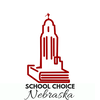

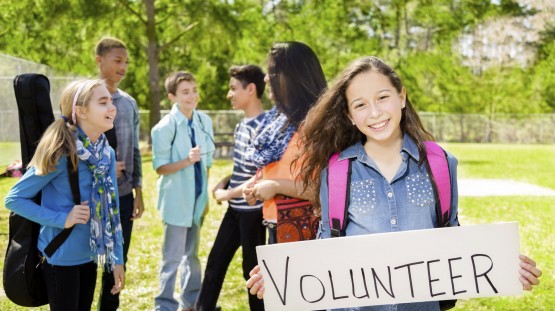

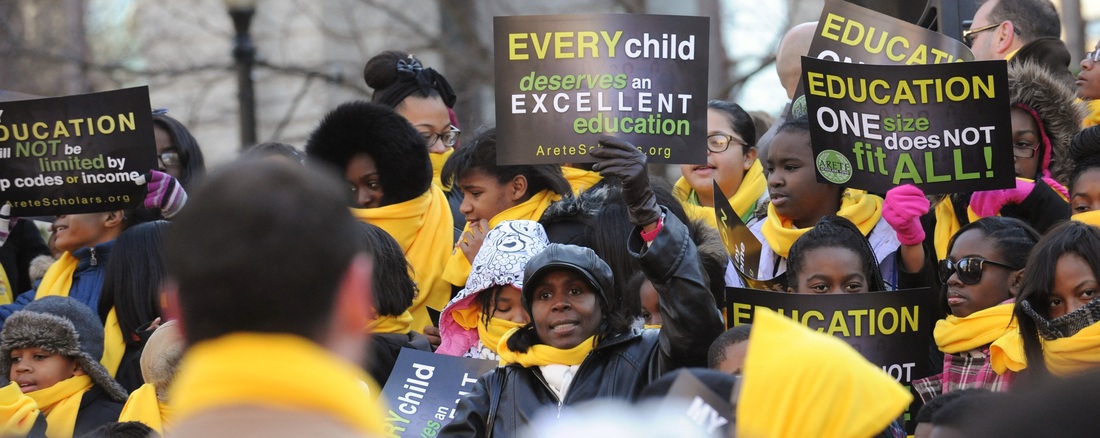
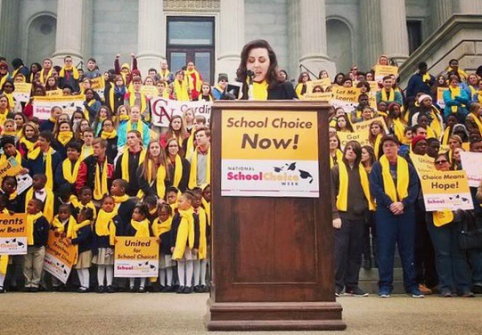
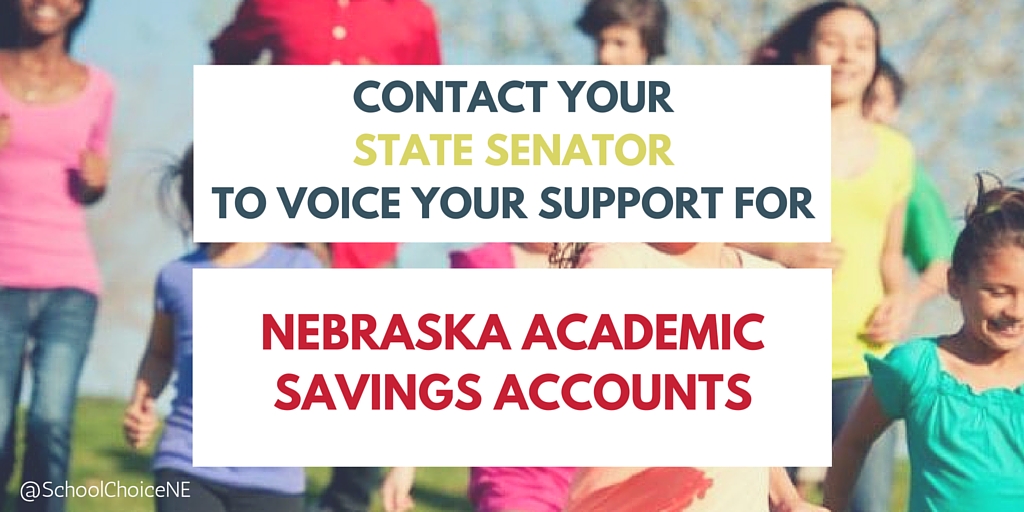
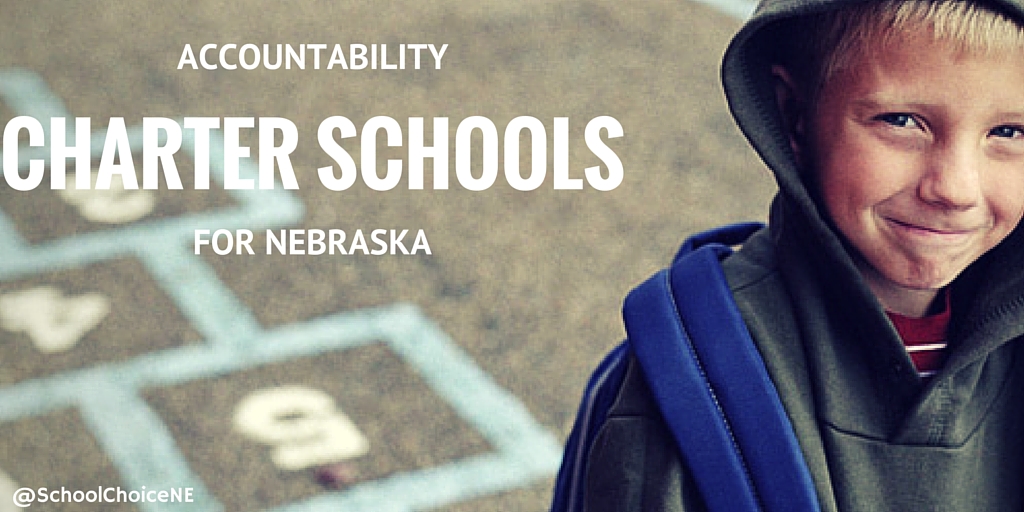
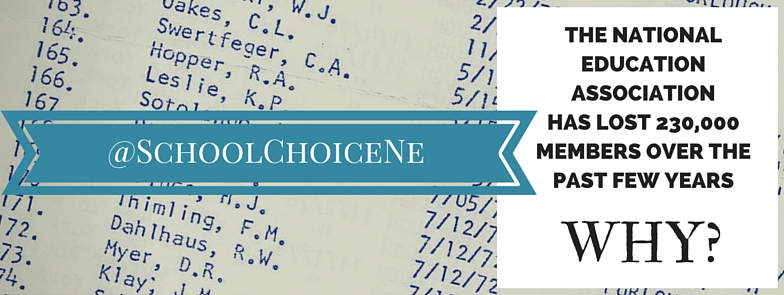
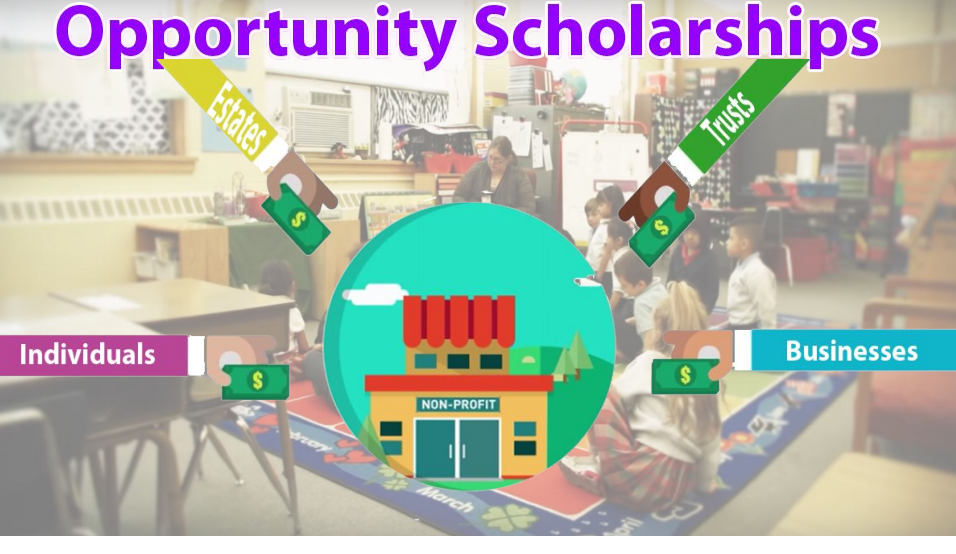
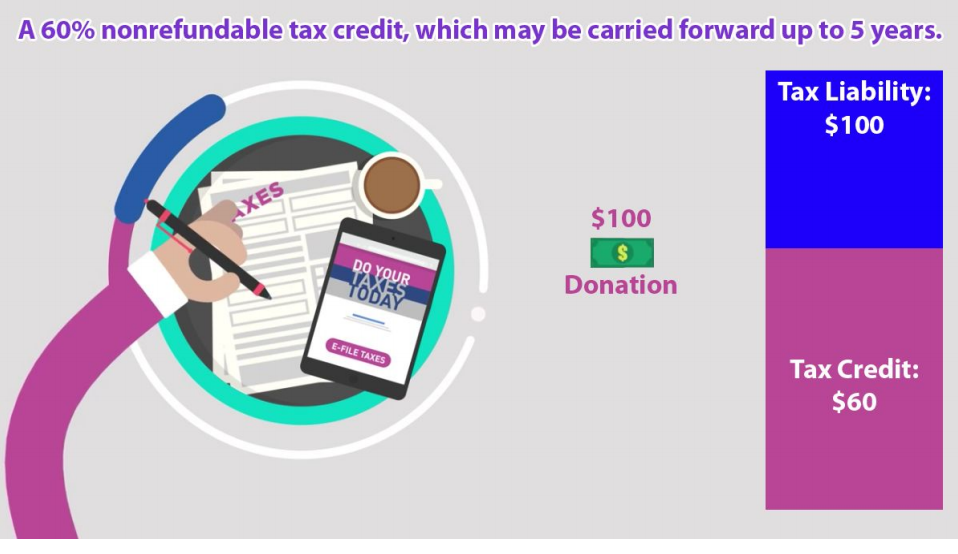

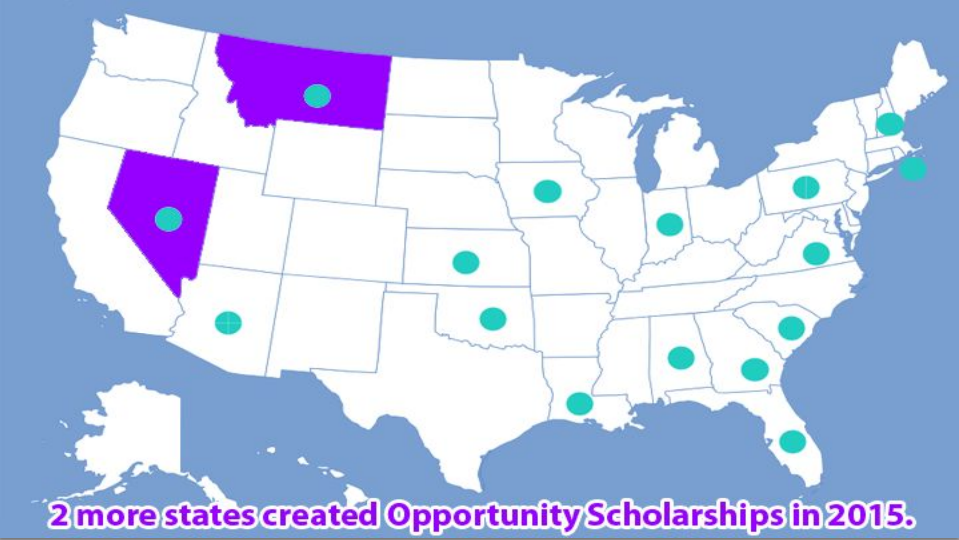
 RSS Feed
RSS Feed